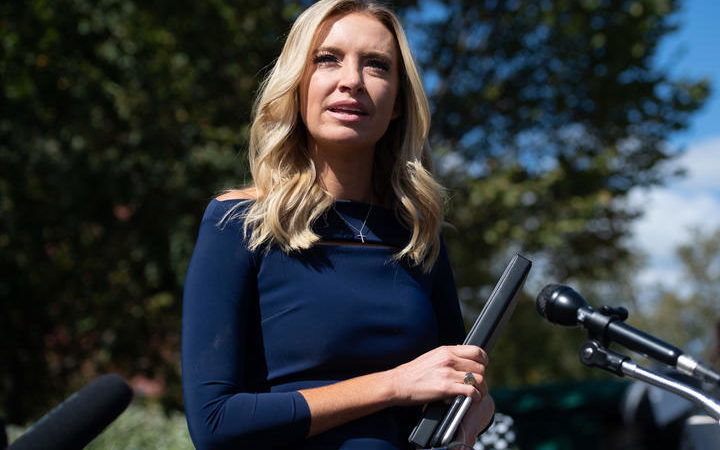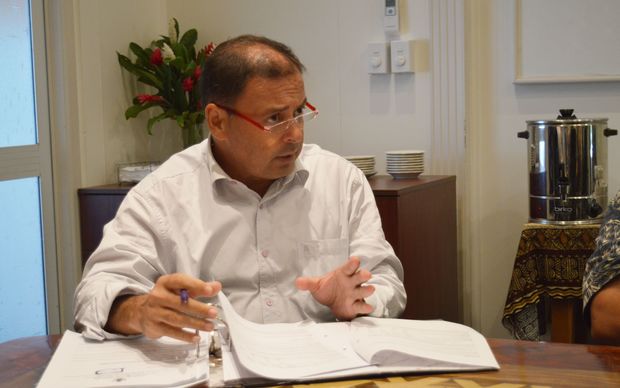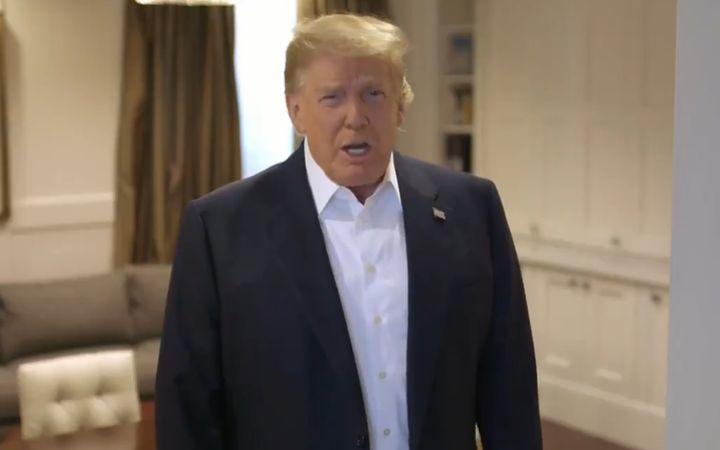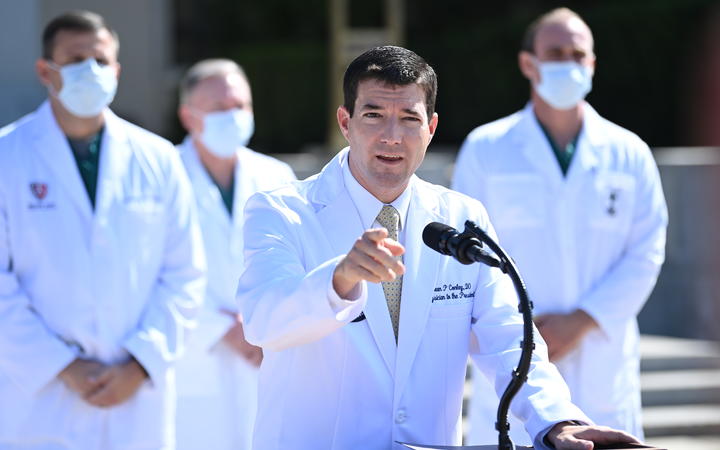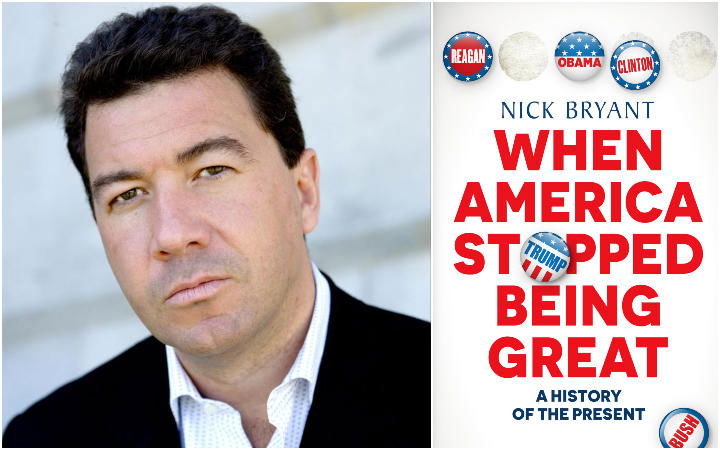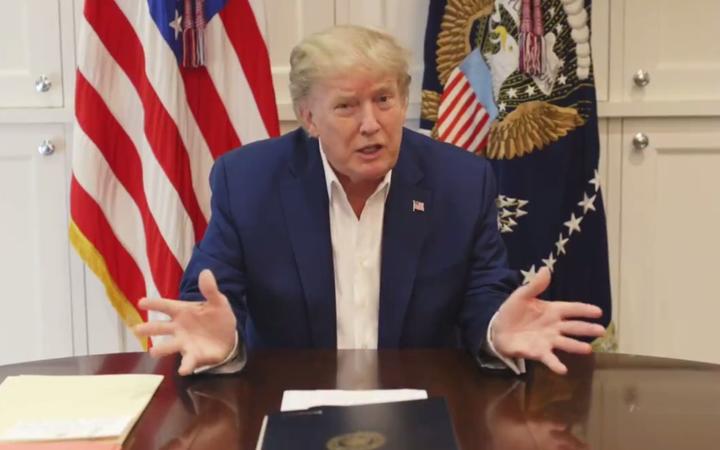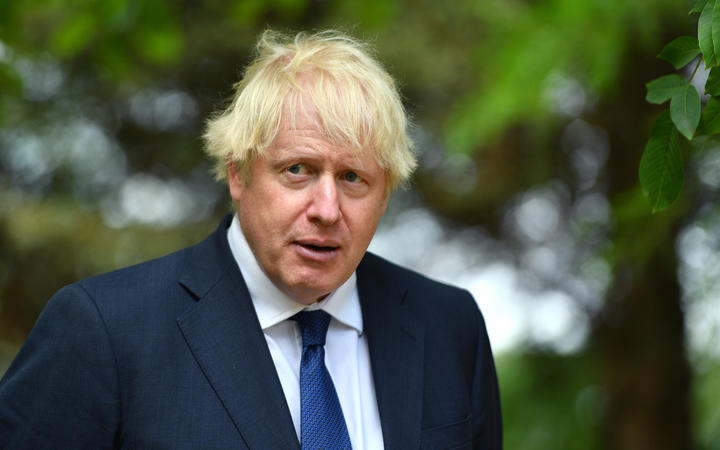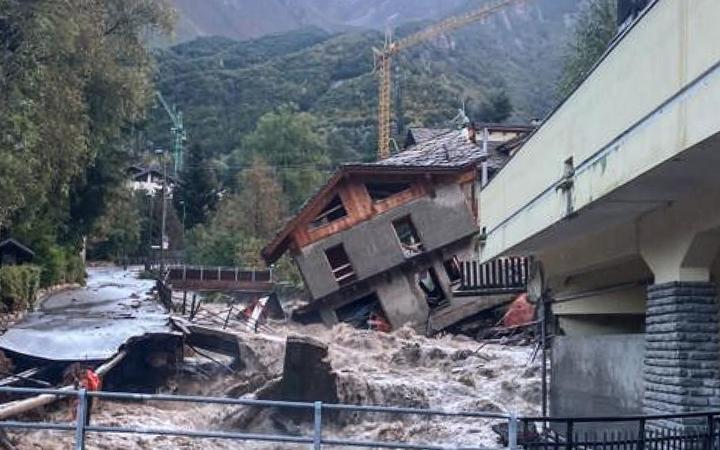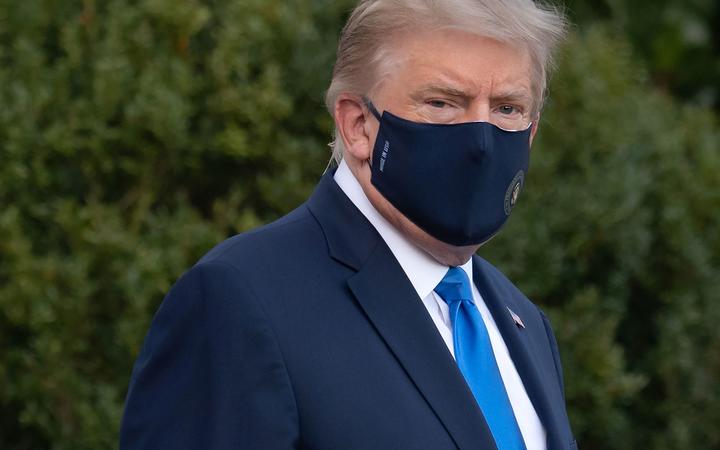White House press secretary Kayleigh McEnany has Covid-19
White House press secretary Kayleigh McEnany says she has tested positive for Covid-19 and will begin quarantining
Kayleigh McEnany says she will begin quarantining after testing positive for Covid-19. Photo: AFP
In a statement posted on Twitter, McEnany said she is not experiencing any symptoms.
"Moreover, I definitively had no knowledge of Hope Hicks' diagnosis prior to holding a White House press briefing on Thursday," McEnany said referring to President Donald Trump's adviser whose positive test results were revealed last Thursday, hours before Trump announced he and his wife also had contracted the coronavirus.
Trump is being treated for Covid-19 at a military hospital outside Washington with the severity of his illness still unclear as his medical team weighs whether he can leave the hospital.
Even if discharged, Trump will need to continue treatment as he is still undergoing a five-day course of an intravenous antiviral drug, remdesivir. The normal quarantine period for anyone testing positive for the novel coronavirus is 14 days.
McEnany said the White House medical unit does not list any members of the press as close contacts. Another White House communications staffer, Karoline Leavitt, has tested positive for Covid-19, a Bloomberg reporter has tweeted.
Donald Trump waves from the back of a car in a motorcade outside of Walter Reed Medical Center, Maryland, on a brief outing to drive by supporters. Photo: AFP
Doctors at Walter Reed National Military Medical Center in Bethesda, Maryland, are treating Trump, 74, with a steroid, dexmethasone, that is normally used only in the most severe cases.
Trump was running a high fever on Friday and had been given supplemental oxygen after his blood oxygen levels dropped, Dr. Sean P. Conley, the White House physician, said on Sunday.
But the Republican president's medical team, which has painted a rosy picture of his condition, will weigh whether he can leave the hospital later on Monday, White House Chief of Staff Mark Meadows told Fox News, adding that he was optimistic Trump would be discharged.
Meadows also defended the decision to allow Trump to leave his suite briefly on Sunday to take part in a drive by to greet supporters outside the hospital. Critics said the action put Trump's security officers at risk.
Even if discharged, Trump will need to continue treatment as he is still undergoing a five-day course of an intravenous antiviral drug, remdesivir. The normal quarantine period for anyone testing positive for the novel coronavirus is 14 days.
Trump frequently downplayed the threat of the pandemic which has now infected 7.4 million Americans and killed more than 209,000. In recent days, he released a series of videos to reassure the public he is recovering from the disease caused by the virus.
Biden says he will debate Trump if experts say it is safe
Democratic presidential contender Joe Biden says he is willing to participate in next week's scheduled debate with President Donald Trump as long as health experts say it would be safe.
Trump's illness has raised questions about the safety of holding the debates ahead of the 3 November election. The second face-to-face encounter for Biden and Trump, who had their first debate last week, is scheduled for 15 October in Miami, Florida.
"If the scientists say that it's safe and the distances are safe, then I think that's fine. I'll do whatever the experts say is the appropriate thing to do," Biden, who tested negative for Covid-19 over the weekend, told reporters in Delaware before heading to Florida on a campaign trip.
A debate between Vice President Mike Pence and Biden's running mate, US Senator Kamala Harris, is still scheduled on Wednesday. They have both tested negative for Covid-19.
- Reuters

